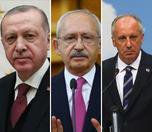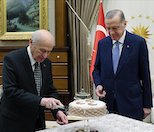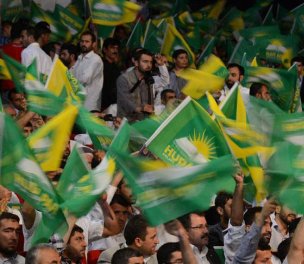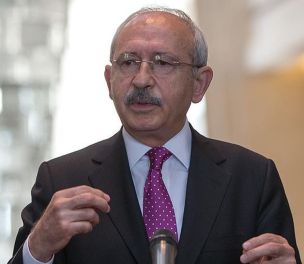Click to read the article in Turkish / Kurdish
The Supreme Election Council (YSK) determined the principles and procedures for the political parties to form alliances in the presidential and parliamentary elections to be held on May 14 with a decision published in the Official Gazette today (May 16).
According to the YSK decision, the political parties that have met the eligibility requirements to contest in the elections can form election alliances.
Accordingly, the 36 political parties determined as eligible on March 11 by YSK can participate in election alliances in the May 14 elections.
The political parties that decide to participate in the elections in an alliance will submit the alliance protocol including the signatures of the presidents of the parties to YSK by 15:00 pm. on March 24.
It will not be possible to include a new political party in the alliance after this day and time.
The parties forming an alliance will be able to make changes in the alliance protocol until 15:00 pm. on April 7, taking into account the date announced in the election calendar for submitting the lists of candidates; and they will be able to end the alliance by notifying YSK by the same day and time.
The political parties that leave an alliance will be notified to the other political parties in the alliance by YSK until 06:00 pm. on the same day.
It will be possible for the other political parties to continue with the election alliance in case a political party leaves the alliance.
The parties forming an election alliance will be able to determine the alliance title to be used on the ballot paper.
Naming alliances with titles that cannot be used in the names of the political parties according to the Law on Political Parties will not be allowed.
No logos, signs, or emblems will be used for the alliances other than the alliance title.
If there is more than one alliance without a title, YSK will give name them with numbers in the order of applications.
The political parties forming an alliance will submit their list of candidates.
The alliance protocols will be prepared by the parties forming the alliance so that it does not contradict the laws and takes into account the principles determined by YSK.
Election alliances so far
The presidential government system adopted in the 2017 referendum requires the president, now the head of the government, to be elected with more than 50% of the votes, either in the first tour of the presidential election or in the second tour in which two candidates receiving the most votes will run. This obliges the political parties to form alliances in the elections.
The Nation Alliance was formed last year by six opposition parties and nominated Kemal Kılıçdaroğlu, the leader of the main opposition Republican People's Party (CHP) as their joint presidential candidate on March 6 last week.
The People's Alliance is formed around Recep Tayyip Erdoğan's Justice and Development Party (AKP) and the supporting Nationalist Movement Party (MHP).
AKP representatives have lately been meeting with some smaller political parties in efforts to expand the People's Alliance.
The People's Democratic Party (HDP) which has many Kurdish-majority provinces in Turkey as its strongholds, on the other hand, formed an alliance with six socialist/left political parties, named Freedom and Labor Alliance.
The alliance formed by HDP has not yet decided whether to run with its own candidate in the presidential elections or to support the opposition block. Kılıçdaroğlu is going to visit HDP this Saturday as the candidate of the Nation Alliance to seek their support. (AS/PE)




.jpg)



.jpg)
.jpg)

.jpg)


